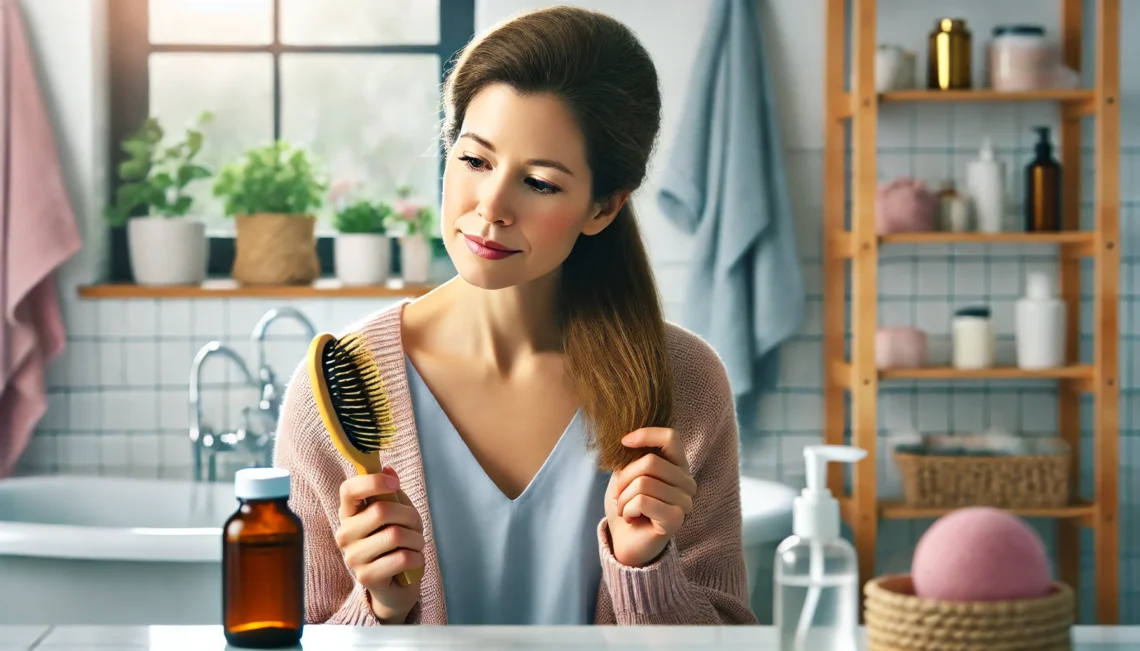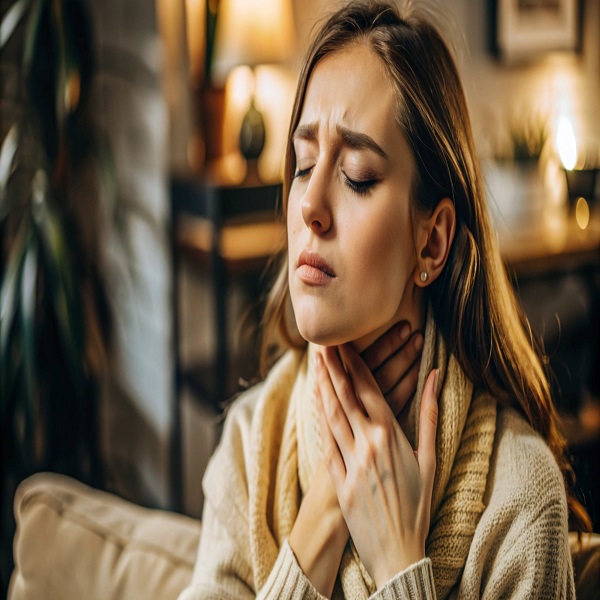Polycystic Ovary Syndrome (PCOS) affects millions of women worldwide, often leading to hormonal imbalances, inflammation, and nutrient deficiencies—all of which contribute to hair loss. Learn more about the causes and symptoms of PCOS hair loss here. For many, supplements offer a promising solution to strengthen hair, prevent shedding, and address the root causes of PCOS-related hair loss. But do they really work? In this article, we’ll explore the most effective supplements for PCOS hair loss, how they work, and what you should consider before adding them to your routine.
How PCOS Causes Hair Loss
Hair loss in PCOS, or androgenic alopecia, occurs due to hormonal imbalances. High levels of androgens (male hormones) such as testosterone and its byproduct, dihydrotestosterone (DHT), shrink hair follicles, leading to thinning hair and increased shedding. Other contributing factors include:
- Insulin Resistance: Elevated insulin levels increase androgen production, exacerbating hair loss.
- Nutrient Deficiencies: PCOS can cause deficiencies in key vitamins and minerals like Vitamin D, Zinc, and Biotin, which are essential for healthy hair.Explore the best vitamins and minerals for managing PCOS hair loss here.
- Inflammation: Chronic inflammation damages hair follicles over time.
Supplements target these underlying causes, offering a natural way to improve hair health.
Top Supplements for PCOS Hair Loss
1. Biotin (Vitamin B7)
Biotin is a water-soluble vitamin known for its role in keratin production, the protein that makes up your hair.
- How It Helps: Strengthens hair strands, prevents breakage, and promotes growth.
- Dosage: 2.5–5 mg daily.
- Research: Studies show that biotin improves hair strength and reduces thinning in women with deficiencies (PubMed Study).
2. Inositol
Inositol is a carbohydrate compound that improves insulin sensitivity and regulates hormones in women with PCOS.
- How It Helps: Reduces insulin resistance and lowers androgen levels, slowing hair loss.
- Dosage: 2–4 g daily, often as Myo-Inositol or D-Chiro-Inositol.
- Research: A PubMed study found that inositol improves ovarian function and reduces androgen levels in women with PCOS.
3. Zinc
Zinc is an essential mineral that supports hair tissue repair, regulates androgens, and reduces inflammation.
- How It Helps: Strengthens hair follicles and reduces DHT activity on the scalp.
- Dosage: 8–11 mg daily.
- Research: Studies on Healthline suggest zinc supplementation reduces hair shedding in women with deficiencies.
4. Vitamin D
Vitamin D is essential for hair follicle cycling and overall hormonal balance. Deficiency is common in women with PCOS.
- How It Helps: Promotes new follicle formation and improves hair density.
- Dosage: 1,000–2,000 IU daily or as prescribed.
- Research: Studies show that women with hair loss often have low Vitamin D levels (Mayo Clinic).
5. Omega-3 Fatty Acids
Omega-3 fatty acids are anti-inflammatory compounds found in fish oil, flaxseeds, and walnuts.
- How It Helps: Reduces inflammation and nourishes hair follicles.
- Dosage: 1,000 mg daily.
- Research: Omega-3 supplementation improves scalp health and promotes hair growth (PubMed Study).
6. Saw Palmetto
Saw Palmetto is a natural DHT blocker that prevents hair follicle shrinkage caused by androgens.
- How It Helps: Reduces androgen activity and slows hair loss.
- Dosage: 160 mg daily.
- Research: A Healthline study found that saw palmetto improves hair density in women with androgenic alopecia.
7. Iron
Iron is vital for oxygen transport to hair follicles. Low levels, often seen in women with PCOS, can lead to thinning hair.
- How It Helps: Prevents hair loss caused by anemia.
- Dosage: 18 mg daily, or as prescribed.
- Research: The Mayo Clinic recommends iron supplementation for women with hair loss due to iron deficiency.
Are Supplements Enough?
While supplements can significantly improve hair health, they work best when combined with other treatments and lifestyle changes:
- Diet: Eat a nutrient-rich diet to complement your supplements. Focus on leafy greens, lean proteins, and Omega-3-rich foods.
- Stress Management: Chronic stress disrupts hormones and worsens hair loss. Practice yoga or meditation.
- Topical Treatments: Use DHT-blocking shampoos and hair growth serums to target scalp health directly.
Choosing the Right Supplement
When selecting supplements for PCOS hair loss, keep the following in mind:
- Quality Matters: Choose third-party-tested products to ensure purity and efficacy.
- Check the Label: Look for clean ingredients without unnecessary fillers.
- Consult a Professional: Speak with your doctor or a nutritionist to determine the right dosage and combination for your needs.
Sample Supplement Routine for PCOS Hair Health
Here’s a sample daily routine to support hair health:
- Morning:
- Multivitamin with Biotin and Zinc
- Vitamin D3 (1,000 IU)
- Omega-3 capsule
- Evening:
- Inositol powder (2 g) mixed in water
- Saw Palmetto capsule (160 mg)
- Weekly:
- Evaluate progress and adjust as needed.
Potential Side Effects and Risks
While supplements are generally safe, excessive intake can cause side effects. For example:
- Too much Zinc can interfere with Copper absorption.
- High doses of Vitamin D may cause toxicity.
- Overuse of Iron can lead to digestive issues.
Always stick to the recommended dosages and consult a healthcare provider if you experience side effects.
When to Expect Results
Hair growth takes time. Most women notice improvements in 3–6 months of consistent supplementation. Be patient and maintain a healthy lifestyle to support your progress.





